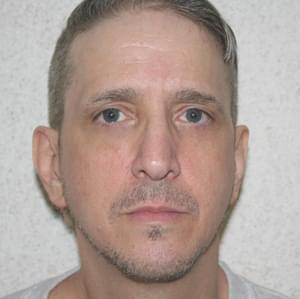
Legal reform advocates and a committee of high-profile Supreme Court practitioners have urged the Presidential Commission on the Supreme Court of the United States to recommend changes in the way the Court handles emergency applications for stays of executions in death-penalty cases.
In testimony in public hearings before the Commission in June and July 2021, Innocence Project Executive Director Christina Swarns, who argued the Texas death-penalty case Buck v. Davis before the Court, and the self-described Supreme Court Practitioners’ Committee, both argued for a stricter standard of review before the Court may vacate a stay of execution granted by a lower court. Noting that “[t]here is no area of law in which reliability, accuracy, and fairness are more critical than capital punishment,” Swarns also advocated that the Court revise its practices to permit a stay of execution based on the votes of four justices — the same number of votes required for the Court to agree to review the merits of a case. “People under sentence of death should not be denied a merits hearing in the Supreme Court on the grounds that they will be executed before the Court can hear the case,” she testified.
In addition, Swarns urged that to protect meaningful access to federal court review of capital habeas corpus cases, “[t]he Supreme Court should be required to automatically stay an execution to permit a full review of first-time habeas petitions.” In January 2017, the U.S. Supreme Court denied a stay of execution to Mark Christeson, allowing Missouri to execute him without affording him any federal court review of his case.
The practitioners’ committee generally opposed any changes to the Court’s handling of emergency petitions, asserting that “the Court’s existing standards already build in deference to lower court rulings when parties apply for a stay or injunctive relief.” It also urged that any changes in practice should be adopted by the Court itself, rather than legislated by Congress. However, “based on the Supreme Court’s recognition that capital cases are different and on the potential beneficial effects of a heightened standard of review,” a majority of members of the committee agreed “that proposals for heightened standards of review for … applications [to vacate stays of execution] warrant serious consideration.”
The Commission hearings come in the wake of an explosion of cases decided through the Court’s shadow docket and an historic execution spree in the last six months of the Trump administration in which the Court denied or vacated every court order that would have delayed the executions of 13 federal prisoners. During that spree, the Court abandoned the traditional appellate practice of deferring to lower court resolutions of disputed issues of fact and — without opinion — permitted executions to proceed despite lower federal court rulings that some of the executions violated federal law and the U.S. constitution.
Christopher Kang, co-founder and chief counsel of the court-reform organization Demand Justice and a former Deputy White House Counsel and Special Assistant to the President for Legislative Affairs during the Obama administration, told the Commission that the true problem that needs to be addressed is the Court itself, not the Court’s institutional practices.
“I had always considered myself an institutionalist,” Kang testified. “I wanted to advance change from the inside and work through the system, willing to find compromise and progress from within. … But the preservation of an institution — any institution, even the Supreme Court — cannot be an end in itself. And this Court has proved it is not worth preserving in its present form.”
Quoting Penn State Law Professor Eleanor Brown, Kang said: “‘We have all been sold this notion that there is an impartial, independent judiciary working for the common good. People on the left have disproportionately bought that fiction. People on the right never bought that fiction. If people on the left buy the fiction and people on the right do not buy the fiction, it means that people on the right … are behaving in activist ways, they are always acutely aware of the stakes and the implications in a way that people on the left are not.’”
Kang said that a “legal elite culture, fueled by Supreme Court practitioners and academics, artificially props up the Supreme Court’s reputation for independence” while Republicans have engaged in a “one-sided politicization of the judiciary … [that] does not reflect the values of most Americans and … is taking the country in an increasingly anti-democratic direction.”
Kang said the only response to the Republican politicization of the Court was a political remedy: enlarging the size of the Court. “You have heard many people testify about what reforms would be good or bad for the Court itself,” he said, “but I fear you have not heard enough about whether the Court itself is good or bad for the people who suffer the most from its far-right jurisprudence. We need to ask not only whether a given reform proposal will help or hurt the Court as an institution, but whether it will help or hurt people who count on institutions like the Supreme Court to protect their rights.”
Kimberly Strawbridge Robinson, U.S. Supreme Court Advocates Hesitant to Force Change on Justices, Bloomberg Law, July 19, 2021; Supreme Court Practitioners’ Committee, July 19, 2021; Dahlia Lithwick, Democrats Are Still Battling Themselves on Court Reform, Slate, July 20, 2021; Innocence Project Staff, Innocence Project Executive Director Christina Swarns Testifies Before the Presidential Commission on the Supreme Court, Innocence Project, July 9, 2021.
Read the testimony of Innocence Project Executor Christina Swarns, the Supreme Court Practitioners’ Committee, and Christopher Kang, Co-Founder and Chief Counsel, Demand Justice.
United States Supreme Court
Oct 10, 2024

Hispanic Heritage Month: U.S. Supreme Court Justice Sonia Sotomayor
United States Supreme Court
Oct 09, 2024

